Baseball History Comes Alive Now Ranked #2 by Feedspot Among All Internet Baseball History Websites and Blogs!
Guest Submissions from Our Readers Always Welcome!
Scroll Down to Read Today’s Essay
Subscribe to Baseball History Comes Alive for automatic updates (sign-up block found in right side-bar)
As a Free Bonus for subscribing, you’ll get instant access to my two Special Reports: Memorable World Series Moments and Gary’s Handy Dandy World Series Reference Guide!
“Ted Williams Military Service” Photo Gallery
Click on any image below to see photos in full size and to start Photo Gallery:
Marine Captain Ted Williams Recalled to Active Duty, January 9, 1952
Plus
One of the Greatest Individual Seasons of All-Time: Ted Williams’ Historic 1941 Season
“If there was ever a man born to be a hitter it was me…A man has to have goals – for a day, for a lifetime – and that was mine, to have people say, ‘There goes Ted Williams, the greatest hitter who ever lived’ ” –Ted Williams
The above quote from Ted Williams may sound a bit cocky, but as Dizzy Dean once said ”It ain’t braggin’ if you can do it”, and, as we all know, there was never any doubt that Ted Williams could “do it.”
Seventy years ago today, January 9, 1952, marks the anniversary of an important day in the life of Ted Williams. The Red Sox’s great outfielder was notified he would be activated for military service during the Korean War. The actual recall came on May 1, 1952, after he appeared in only six games. Ted had already missed three full years due to service in World War II.
In the months ahead, Ted Williams will be tasked with flying 39 combat missions in his F9F Grumman Panther, and will survive a crash-landing after being shot down.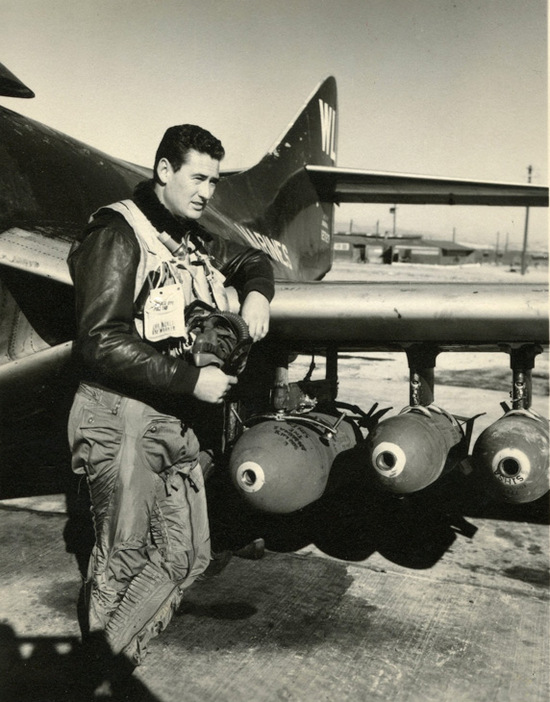 On many of his missions, Ted will serve as wingman for former astronaut and
On many of his missions, Ted will serve as wingman for former astronaut and
senator, John Glenn, who described Ted as one of the best pilots he knew. He didn’t return to the Red Sox until late in the 1953 season and appeared in only 37 games. All together, Ted lost approximately 4.75 years to military service, of which at least three can be considered prime years.
Ted Williams’ Staggering Career Numbers
There’s little debate that Ted Williams was one of, if not the greatest, pure hitter the game has ever seen. In his 19-year major league career (1939–1942, 1946–1960), “Teddy Ballgame” was a seventeen-time All-Star, two-time American League Most Valuable Player, six-time American League batting champion, four-time American League home run leader, four-time American League RBI leader, and two-time Triple Crown winner. That’s quite an impressive resume.
Over his career, Ted hit .344 (seventh all-time), with 2,654 hits, 521 home runs (19th all-time), 1839 RBIs (14th all-time), and a .482 on-base percentage (first all-time). His .634 slugging average is second behind only Babe Ruth’s .689. His 191 career OPS+ is also second, behind only Ruth’s 206 (100 being the major league average).
The “Splendid Splinter’s” Historic 1941 Year
Ted Williams’ 1941 season is often considered one of the greatest offensive seasons ever. He led the league in all the following categories: runs (135), home runs (37), walks (147), batting average (.406), on-base percentage (.553), OPS (1.287), and
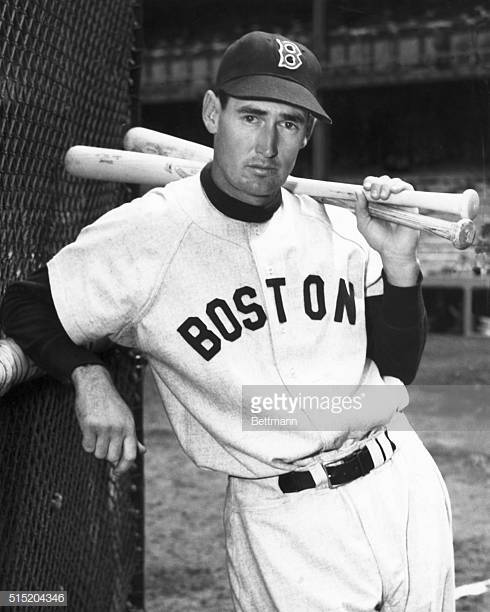
OPS+ (235). His .406 batting average is still the highest batting average in the major leagues since 1924, and the last time any major league player has hit over .400.
His .553 on-base percentage stood as a major league record for 61 years, and his .735 slugging average was the highest in the major leagues between 1932 and 1994. Williams also had 185 hits and was second in RBIs with 120. He accomplished all this while striking out only 27 times in 606 plate appearances.
In the ninth inning of the 1941 All-Star game, Ted hit a walk-off three-run homer to win the game for the American League, 7-5. He later described that game-winning home run as “the most thrilling hit of my life.” After a season like this, it’s hard to believe he was denied the MVP award. Perhaps revealing the New York bias of the Baseball Writers of America, the award went to Joe DiMaggio (who also had a fabulous year).
Would He Sit Out the Last Two Games?
On September 28, before the final two games of the 1941 regular season, a doubleheader against the Philadelphia Athletics, he was batting .39955, which would have been officially rounded up to .400. Red Sox manager Joe Cronin offered him the chance to sit out the final day, but Ted Williams famously declined, saying: “If I’m going to be a .400 hitter I want more than my toenails on the line.” He proceeded to go 6-for-8 and finished the season at .406.
Let’s Speculate A Bit!
What if Ted Williams hadn’t lost approximately 4.75 years to military service? What would his career numbers look like? We can only take a reasonable guess.
He hit 521 home runs in his 19-year career. According to Baseball-Reference, his 162-game average computes to 37 home runs per year. Since at least two of those lost 4.75 years were subprime years, I’ll use a conservative estimate of an additional 32 per year. That extrapolates to an additional 152, for a career total of 673 home runs, good for sixth on the all-time list.
His speculated career RBI total is even more dramatic. His 162-game average for 19 seasons is 130. Dropping that figure down to a conservative 120 per year, that computes to an additional 570 RBIs, for a career total of 2409. That would just beat out Hank Aaron’s 2397 RBIs by 12 for first place on the all-time list.
Our “senior” readers who grew up in the Boston area (Paul Doyle and Larry Baldassaro come immediately to mind!) were certainly privileged to see Ted play on a regular basis. I’m sure we have many others who frequent this page. If you have any memories of Ted you’d like to share, please do so in the comments section. He was a great one, for sure. I was fortunate enough to see him in person only once, at his last game in Chicago at Comiskey Park in September of 1960.
Ted Williams was a first-ballot selection to the Hall of Fame in 1966 and his #9 has been retired by the Red Sox. He was named to the Major League All-Century team and the Major League Baseball All-Time team.
Gary Livacari
Subscribe to our website, “Baseball History Comes Alive!” with over 1200 fully categorized baseball essays and photo galleries, now surpassing the 700K hits mark at 75K hits: www.baseballhistorycomesalive.com
Information: Excerpts edited from Ted Williams Wikipedia page; stats from Baseball-Reference.
Take a guess at this week’s Mystery Player
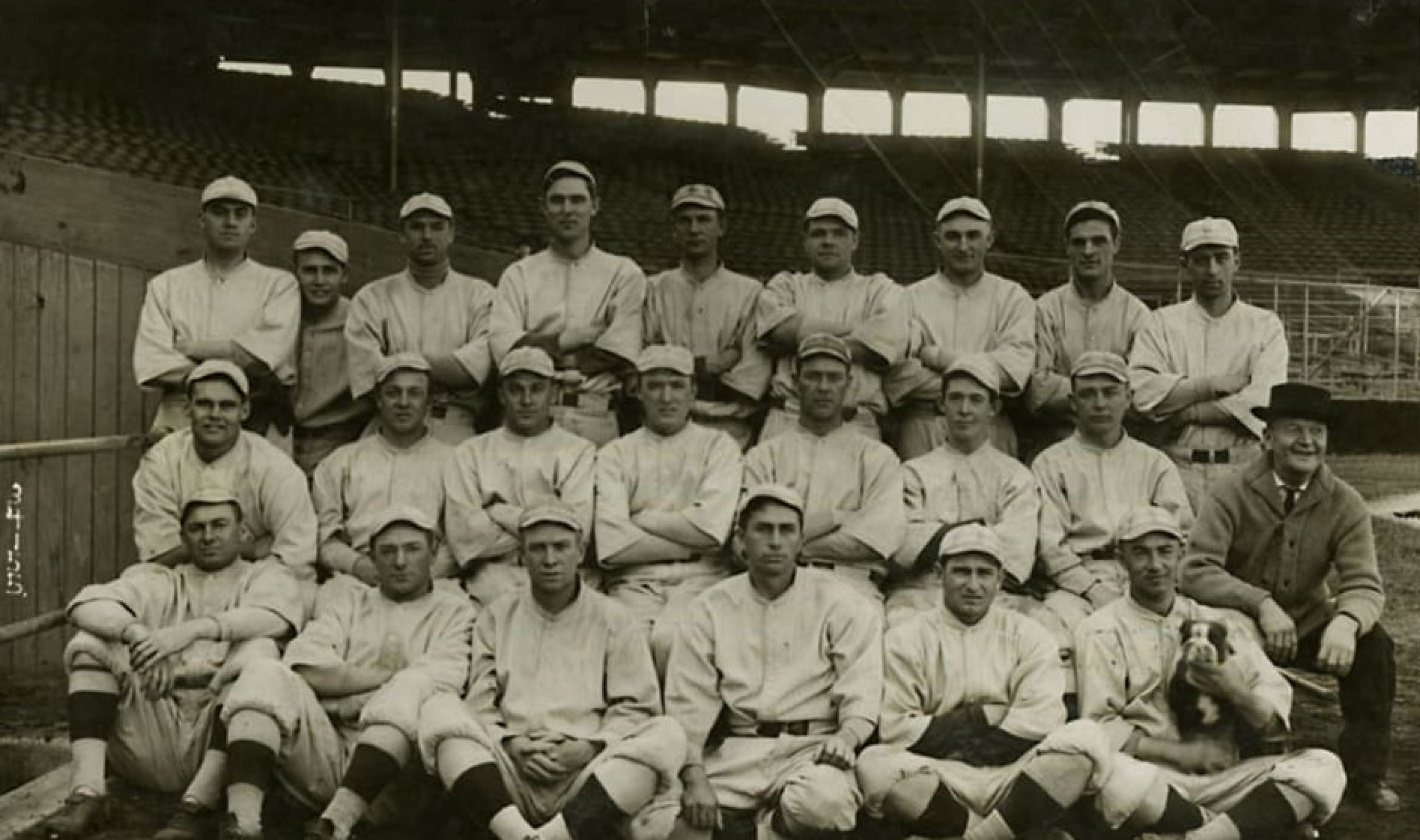
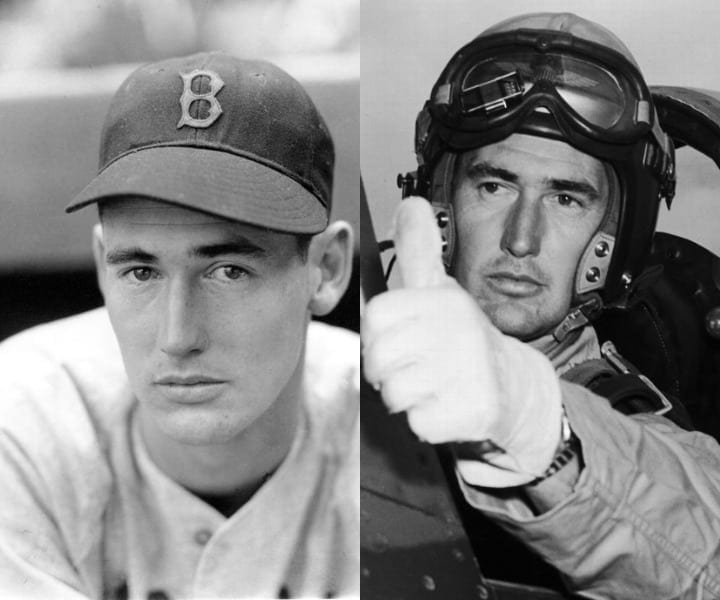
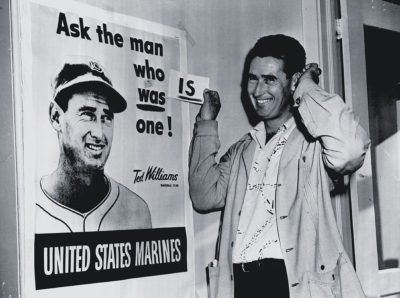
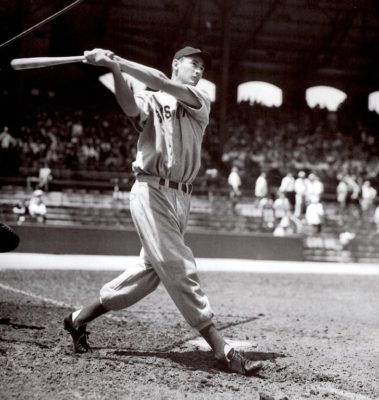
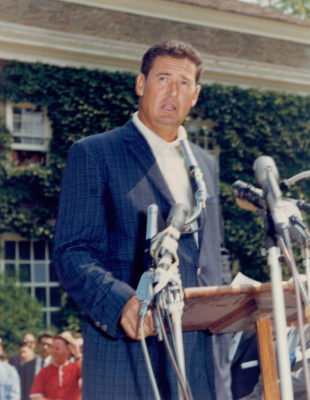
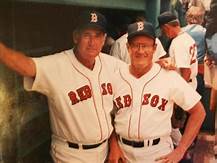
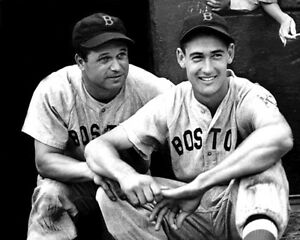
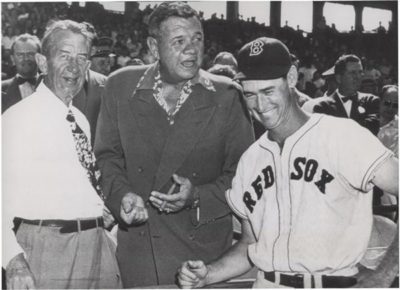
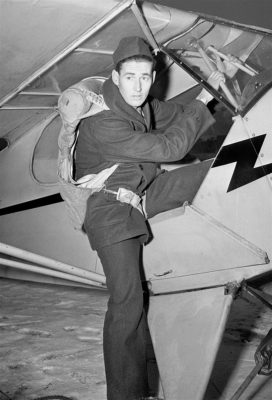
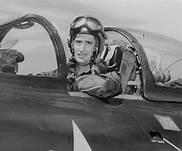
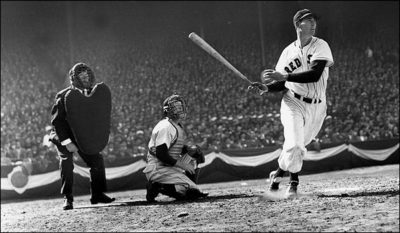
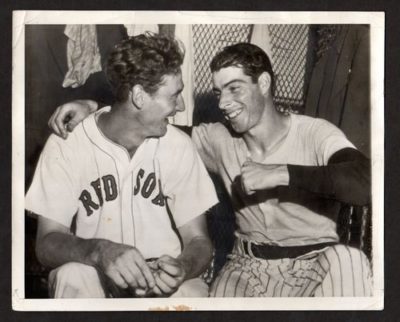
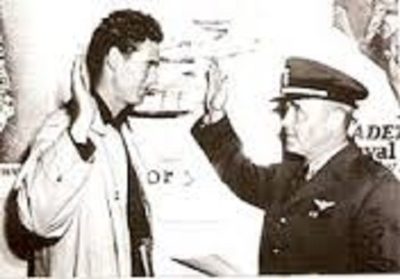
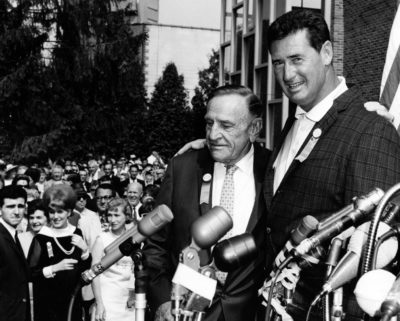
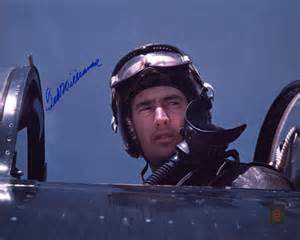
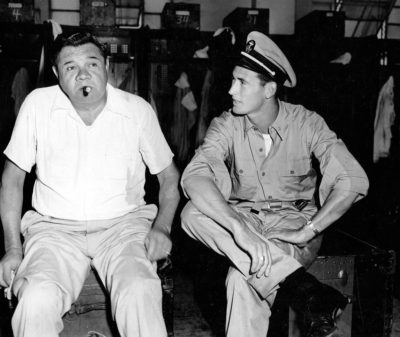
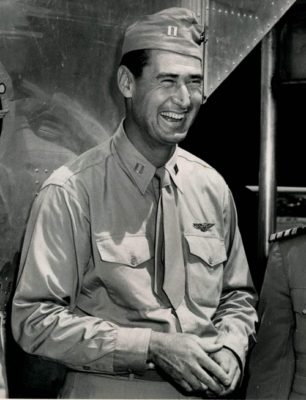
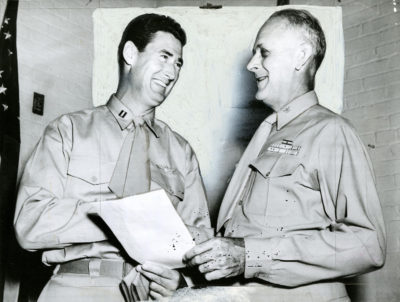
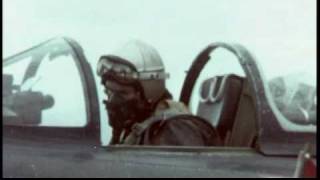
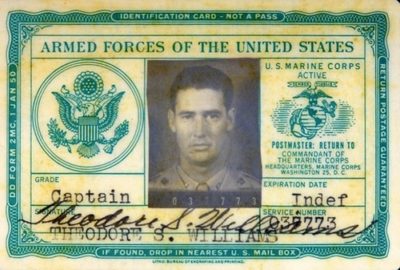
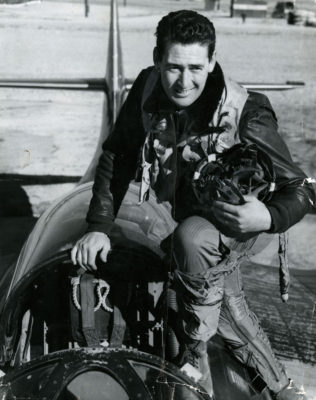
My dad was a ted williams fan as dad was stationed in Boston during wwII….I was a Yankee fan when young…we had a few discussions who was better mickey mantle or ted williams …then in 1969 ted williams became manager of the Washington senators..
We both became fans of the senators as we saw many games together that summer..I must say that the summer of 1969 was the best of my life..
Going to baseball games with my dad were some if not the best times of my life… thanks to ted williams
Thanks Victor, that’s all great info. I always love the personal stuff like this. Unlike you, as a Cub fan, I don’t exactly have fond memories of 1969, as you can imagine!. -Gary
Here’s how I came up with the 4.75 lost years for Ted. He lost years 1943, ’45, and ’46 completely. That’s three. Then in 1952, he played in only six games before the military recall, so I counted that as roughly another complete lost season, number four. In 1953, he played in only 37 games, missing all but 24% of the 154 games. Putting that all together, I came up with roughly 4.75 years lost to military service. If you can come up with a better computation for time lost to service, please let me know.
Yeah, Gary, you’re on the mark with the extrapolations. I gave him maybe a few more homers but you’re probably more accurate.
Williams was also very funny without trying to be. Later in life when he was in an assisted living situation, they would bring him his main meal all on one plate, including desert. The server would sit opposite him and when Ted finished the main course he would turn the plate to the desert portion. One day Ted finished his dinner and was distracted by something and looked away. In that instant, the server rotated the plate to the desert. Ted looked at the plate bewildered and exclaimed, “What’s this? I didn’t order bleepin’ seconds!”
Haha! Great story Bill…and that sounds just like him, too!
To have the opportunity to watch a supremely talented, gifted person do what he does best is a joy, a thrill and a pleasure. Ted Williams was all that.
Thanks Joan, you’re right on all counts!
Ted was my boyhood hero, but sadly I got to see him play in-person only a few times.
We lived in Chicopee, MA (and at that pre-Mass.Turnpike time it was a two-hour drive to Fenway and a relatively expensive outing. I did get to see him hit one homer, on August 14, 1957, which I’ve written about in a SABR game story:
https://sabr.org/?s=Ted+Williams&post_type%5Bgame%5D=game
I could have never imagined at that time that one day, after having edited a book about him, I would get to sit in his living room in Hernando, FL, and speak with him one-on-one. They say you should not meet your hero because he or she could never live up to the image you’ve creted in your mind. Instead, he could not have been more cordial and open. We discussed not just baseball but a wide variety of topics and he asked me as many questions as I asked him. I came away from that visit with a greater appreciation for his wide range of knowledge and his boundless curiosity. I describe that meeting in the epilogue to Ted Williams: Reflections on a Splendid Life (Northeastern University Press, 2003).
Thanks Larry, I remember you telling me about that meeting in Ted’s living room and what a memorable occasion that was for you. Glad you checked in with the story! -Gary
Apropros of nothing, Ted Williams had the most legible and neat handwriting of any major league ball player.
His autograph penmanship is a thing of beauty.
Good point…and the Bambino is right up there with him in the autograph penmanship department. I guess the brothers’ at St. Mary’s taught him well!
Loved your book on Tony Lazzeri.
Thanks, Paul. Glad you enjoyed the book.
Just reviewed the box score for that August 14 game Larry mentioned.
Whitey Ford lasted one inning and gave up three runs. Ford had a horrific record at Fenway. He usually skipped his turn in the rotation at Fenway.
Tom Brewer, the pitcher for the Sox went 8 2/3 innings and gave up 15 hits!
Wow, have times changed.
Thanks Paul, great info. I hope you noticed I mentioned you and Larry in the text!
Yes, Gary, I did. Thanks.
Like Larry I only saw Ted Williams play in person once and it was in his last season. It was a Sunday doubleheader on July 31st against the Detroit Tigers.
It was my first MLB game and I was 8 years old (turning 9 later that summer).
Williams played in the first game and did hit a homer; so I did see one of the last of his 521 HR’s.
Because games on TV were only shown mostly on weekends, most of my memories are through the words spoken by Curt Gowdy on the radio.
It’s sacrilegious for a Red Sox fan to say so, but because the Yankees were in their last gasps of their dynasty, I was fascinated by them as they appeared in five straight World Series in my formative years.
While I loved the Sox, the Yankees, especially Mickey Mantle were also the subject of my affections. My membership card in Red Sox Nation will probably be revoked with that admission, but I have as my defense that I still had not reached the age of reason at that point. ; )
That’s OK Paul…we all ahaave our secret sins. I’m a Cub fan who actually likes the Cardinals and the White Sox!
Over on Facebook, someone asked about his career hits total would have been. Here’s what I came up with: His 162-game average over 19 seasons was 188. So using a conservative 150 per year for the lost 4.75 years comes out to an additional 712 hits for a projected career total of 3366, good for 4th place behind Rose, Cobb, and Aaron, and slightly ahead of Musial.
Someone also mentioned that if my projection of 673 HRs was accurate (or just even in the ballpark), it’s unlikely he would have retired in 1960, being that close to breaking Ruth’s record. 1961 was an expansion year and home runs were flying out of ball parks at a record pace. So it’s not unreasonable to assume he would have played another year or two, especially given that his last year, 1960 he hit 29 HRs in only 316 ABs, which projects to a 40 HR pace over a full year.
Many forget Ted’s stint as manager of the Washington Senators/ Texas Rangers.
When Bob Short bought the Senators, he wanted to make a splash.
Edward Bennet Williams, the owner of the Redskins had just hired Vince Lombardi as coach and Short one upped him by hiring The Kid a few short days later. Imagine the combine of Williams and Lombardi heading your city’s two major sports franchises days apart.